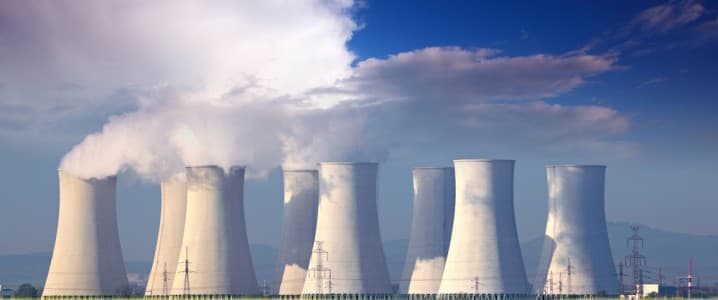Is this the dawn of a new nuclear era? Across the world, there are rumblings of a new push for nuclear as a solution to decarbonizing global energy production, even from environmentalist groups, representing a stark turnaround for many. Even the most anti-nuclear countries, such as Germany and Japan, have been extending the lives of their existing nuclear plants, flying in the face of their previous pledges to phase out the divisive technology altogether. While nuclear power never died in some key economies, such as China and Russia, more influential world leaders in the West are now getting on board, signaling a potential sea change for the nuclear power industry.
For decades, nuclear disasters such as Fukushima, Three Mile Island, and Chernobyl have loomed large in the public consciousness, and very few people want a nuclear reactor in their backyard, or even in their home state. Nuclear meltdowns are very rare, however, and it has been calculated that on the whole nuclear energy actually saves lives, by preventing millions of deaths that would otherwise be attributed to air pollution. But even with the relatively low risk of nuclear disaster, there is still the very real issue of nuclear waste, which is extremely costly to maintain and stays hazardous for thousands of years. But with the impending doom posed by catastrophic climate change and the ever-increasing urgency to address it, nuclear power just seems like the far lesser of two evils. It’s efficient, dependable, and totally emissions-free, and it’s a proven technology with infrastructure and supply chains already in place around the world.
The United States remains the world’s single biggest producer of nuclear energy, but the industry has been in decline for decades, the country’s nuclear fleet is getting concerningly long in the tooth, and the cost of maintaining nuclear waste is weighing heavily on taxpayers. But for the first time in years, the future of the nuclear industry seems a bit brighter in the U.S. as the urgency of decarbonization amps up the pressure on policymakers and private industry leaders. While public opinion is still divided, it is slowly changing in favor of nuclear energy, and Silicon Valley is throwing its full weight behind the nuclear option. Now, the Biden administration’s Inflation Reduction Act is keeping the momentum building for nuclear power in the U.S. by providing a production tax credit for existing reactors, incentivizing advanced nuclear deployment, and providing funding for advanced assaying of low-enriched uranium to help build up domestic supply chains for the essential nuclear fission fuel source.
In the United Kingdom, there is also an increasing groundswell of support for nuclear energy, including at the highest levels of governance. Back in the second month of Russia’s illegal invasion of Ukraine, then-Prime Minister Boris Johnson told his constituents that the answer to weaning the nation off of Russian energy imports was investing in the country’s own nuclear plants. “Johnson’s plan was to offer an unexpected lifeline to a divisive industry by promising to build 24 gigawatts of nuclear power capacity over the next three decades, up from just 5.88GW at present,” according to a report from the Financial Times. The plan would not only relieve the U.K.’s dependence on the Kremlin, it would also revitalize the nation’s profile as a global leader of the nuclear industry. “Our aim is to lead the world once again in a technology we pioneered so that by 2050, up to a quarter of our power consumed in Great Britain is from nuclear,” Johnson proclaimed.
Of course, Boris Johnson has been sacked, but his replacement Rishi Sunak has continued to show enthusiasm for ramping up nuclear power production capacity in the United Kingdom. After just a month in office, Prime Minister Sunak inked a £679 million (approximately $840 million) deal with French state-backed utility EDF to build a 3.2GW nuclear power station on the Suffolk coast. Upon completion, this plant would have enough electricity generation capacity to power six million homes.
However, critics point out that this isn’t the first time England has tried (and failed) to kick-start a new golden age of nuclear energy. “The government is already in a battle against time simply to replace its existing nuclear generation, let alone expand the fleet,” reports the Financial Times. “All but one will be decommissioned by 2028.” However, this time feels different. We’re seeing a stark shift in public and private opinion about nuclear power, and the energy crisis in Europe, as well as the ongoing war in Ukraine, have redrawn all the rules. In a time when we need both energy security and decarbonization in a hurry, many are coming to the conclusion that we can no longer ignore the benefits of nuclear energy.
By Haley Zaremba for Oilprice.com
More Top Reads From Oilprice.com:
- Iran Claims Panama Oil Tanker Cancellations Were Politically Motivated
- Oil Hits 7-Week High On Strong Demand In China
- Iran’s Weapon Exports Are Becoming A Big Problem For The West


















